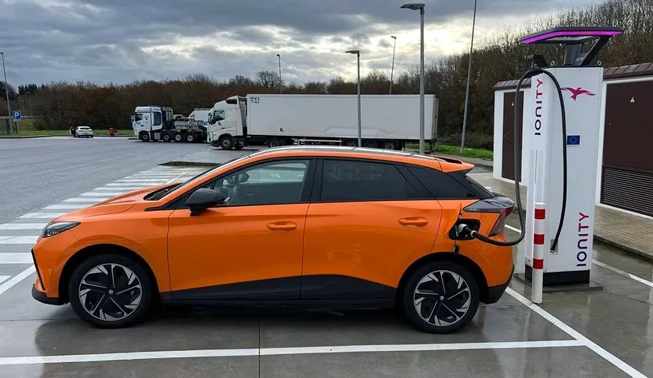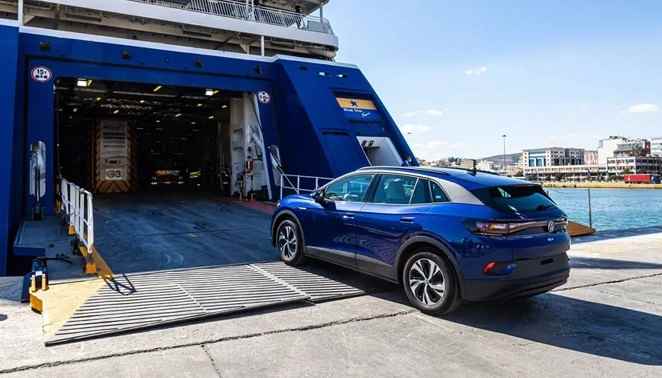The Real price war for electric cars is yet to come.
The United States will hold elections on November 5. Furthermore, events there typically have an international impact. The electric vehicle is no different, and significant consequences will occur on both sides of the Atlantic if Donald Trump prevails, as the polls suggest.

Should Trump win, it is quite probable that he would resume removing government funding for the acquisition of electric vehicles. Something particularly impacts companies such as Tesla.
To keep up with the increasing number of shipments from China, Elon Musk Fan will have to shift additional manufacturing from their US operations to Europe. That calls for more volume to enter our market, which necessitates a reduction in margins and pricing.
Geopolitics is also relevant. Furthermore, US assistance for Ukraine in its fight against Russian aggression would likely decline with Trump’s election. A factor that will force Europe to boost its already significant help, meaning less money will be available for everything else, including aid for electric vehicles.
The second stage of the price war arrives.
The message Germany sends to its citizens—many of whom already perceive that the government does not support electric cars—was one of the difficulties raised by its decision to cease public help early. They choose different options. Why am I going to exert myself by myself? Many believe. Something that caused the sales of gasoline-powered automobiles to rise in January while those of electric cars fell.
A contradictory message in Germany that is the driving force of car sales, also electric, in Europe, will mean that there will be less cake to distribute among more and more contenders.
VW was among the initial ones to relocate. To make up for the lack of assistance and prevent a decline in sales, it has started a significant discount campaign for its electric vehicles. a movement symbolizing the cost of the initial phase of the pricing war.

For example- The ID.4 Pro priced at 46,335 euros in October of last year, had a sales cost that included the portion corresponded to the state aid manufacturer at the time. The price per unit sold was 44,835 euros. That translates into a profit of almost 1,500 euros per car, or an estimated 4% sales margin.
Currently, Analysts estimate that the identical ID.4 Pro has lost almost 3,500 euros for every unit sold after being discounted by 7,735 euros to 38,600 euros. Something that may spread to the remainder of the range in a downward cycle that Volkswagen might not be able to withstand for very long.
Unsurprisingly, Several manufacturers are following suit. More 3,000–17,000 euro discounts on BYD’s models are now available. In Germany, Tesla has dropped the price of the Model Y to 8,000 euros and offered a 0% financing option.
A price spiral that is devastating due to a fight. Carlos Tavares, the CEO of Stellantis, raised this point during a press conference and warned that the car sector is about to witness a “bloodbath.”
That will have a greater impact on conventional organizations since companies like Tesla and BYD have placed all of their money on electric cars, giving them far stronger economies of scale and increased readiness for war.
They are nevertheless profitable despite the recent reductions. Take Tesla, which in the last quarter of 2023 had a net profit margin of 8.2%, or almost 3,280 euros of profit per unit supplied.
Chinese organizations will able to easily absorb these price fluctuations since they have access to vast resources and limitless government assistance in the form of low-interest loans.
A volume that is both its greatest advantage and, as the German government has pointed out, a grave error, as it is severing its groups’ advancement with the withdrawal of help, which will impede expansion and investments in new factories. The real massacre that Tavares describes will undoubtedly be a whiting that eats its tail.
The conclusion is that thanks to this clumsiness, It will be simpler for Tesla to overtake Europe. The situation for the German car sector is not favorable. Electric car manufacturers have spent billions creating the vehicles; nevertheless, a significant portion of these investments will need to be “amortized,” or canceled, because of their errors, as well as a lack of vision and oversight on the side of the public.
According to the German press: «The policy change has become the biggest risk for the German automobile industry.
Related Post
